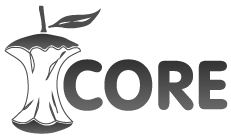News
2nd International Workshop on Mining Scientific Publications will take place in conjunction with JCDL 2013 (Indianapolis, USA - July 2013).1. INTRODUCTION
Digital libraries that store scientific publications are becoming increasingly central to the research process. They are not only used for traditional tasks, such as finding and storing research outputs, but also as a source for discovering new research trends or evaluating research excellence. With the current growth of scientific publications deposited in digital libraries, it is no longer sufficient to provide only access to content. To aid research it is especially important to improve the process of how research is being done.
The recent development in natural language processing, information retrieval and the semantic web make it possible to transform the way we work with scientific publications. However, in order to be able to improve these technologies and carry out experiments, researchers need to be able to easily access and use large databases of scientific publications.
This workshop aims to bring together people from different backgrounds who:
(a) are interested in analysing and mining databases of scientific publications,
(b) develop systems that enable such analysis and mining of scientific databases or
(c) who develop novel technologies that improve the way research is being done.
2. TOPICS
The topics of the workshop will be organised around the following three themes:
- Infrastructures, systems, datasets or APIs that enable analysis of large volumes of scientific publications.
- Semantic enrichment of scientific publications by means of text-mining, crowdsourcing or other methods.
- Analysis of large databases of scientific publications to identify research trends, high impact, cross-fertilisation between disciplines, research excellence and to aid content exploration.
Topics of interest relevant to theme 1 include, but are not limited to:
- Systems, services, datasets or APIs for accessing scientific publications and/or research data. The existence of datasets, services, systems and APIs (in particular those that are open) providing access to large volumes of scientific publications and their metadata is an essential prerequisite for being able to research and develop new technologies that can transform the way people do research. We invite papers presenting new systems, services, APIs or datasets that enable people to access databases of scientific publications and carry out their analysis. Papers addressing Open Access are of a special interest. We also invite papers that discuss issues and current challenges in design of these systems or address the issues of accessing and managing scientific publications and/or research datasets.
Topics of interest relevant to theme 2 include, but are not limited to:
- Novel information extraction and text-mining approaches to semantic enrichment of publications. This might range from mining publication structure, such as title, abstract, authors, citation information etc. to more challenging tasks, such as extracting names of applied methods, research questions (or scientific gaps), identifying parts of the scholarly discourse structure etc.
- Automatic categorization and clustering of scientific publications. Methods that can automatically categorize publications according to an established subject-based classification/taxonomy (such as Library of Congress classification, UNESCO thesaurus, DOAJ subject classification, Library of Congress Subject Headings) are of particular interest. Other approaches might involve automatic clustering or classification of research publications according to various criteria.
- New methods and models for connecting and interlinking scientific publications. Scientific publications in digital libraries are not isolated islands. Connecting publications using explicitly defined citations is very restrictive and has many disadvantages. We are interested in innovative technologies that can automatically connect and interlink publications or parts of publications, according to various criteria, such as semantic similarity, contradiction, argument support or other relationship types.
- Models for semantically representing and annotating publications. This topic is related to aspects of semantically modeling publications and scholarly discourse. Models that are practical with respect to the state-of-the-art in Natural Language Processing (NLP) technologies are of special interest.
- Semantically enriching/annotating publications by crowdsourcing. Crowdsourcing can be used in innovative ways to annotate publications with richer metadata or to approve/disapprove annotations created using text-mining or other approaches. We welcome papers that address the following questions: (a) what incentives should be provided to motivate users in contributing metadata, (b) how to apply crowdsourcing in the specialized domains of scientific publications, (c) what tasks in the domain of organising scientific publications is crowdsourcing suitable for and where it might fail, (d) other relevant crowdsourcing topics relevant to the domain of scientific publications.
Topics of interest relevant to theme 3 include, but are not limited to:
- New methods, models and innovative approaches for measuring impact of publications. The most widely used metrics for measuring impact are based on citations. However, counting citations does not take into account the publication content and the qualitative nature of the citation. In addition, there is a delay between the publication and the measurable impact in citations. We in particular encourage papers addressing new ways of evaluating publications’ impact beyond standard citation measures.
- New methods for measuring performance of researchers. Methods for assessing impact of a publication can often be extended to methods that can assess the impact of individual researchers. However, there are also other criteria for measuring impact in addition to publications, such as the development and publication of research data, economical and market impact, that should also be taken into account. We welcome papers addressing these aspects.
- New methods for measuring impact of research groups. The same as for impact of individual researchers holds for research communities.
- Methods for identifying research trends and cross-fertilization between research disciplines. Identifying research trends should allow discovering newly emerging disciplines or it should help to explain why certain fields are attracting the attention of a wider research community. Such monitoring is important for research funders and governments in order to be able to quickly respond to new developments. We invite papers discussing new methods for identifying trends and cross-fertilization between research disciplines using methods ranging from social network analysis and text- and data-mining to innovative visualization approaches.
- Application of mining from scientific databases. New methods and models developed for mining from scientific publications can be applied in many different scenarios, such as improving access to scientific publications, providing exploratory search in digital collections (using novel interfaces, visualisations, etc.), identifying experts. We encourage papers describing innovative approaches that use scientific publications and data to solve real-world problems.
3. EXPECTED AUDIENCE
The workshop on Mining Scientific Publications aims to bring together researchers, digital library developers and practitioners from government and industry to address the current challenges in the domain of mining scientific publications.
4. SUBMISSION FORMAT
We invite submissions related to the workshop’s topics. Long papers should not exceed 8 pages and short papers should not exceed 4 pages of the ACM style. Furthermore, we welcome demo presentations of systems or methods. A demonstration submission should consist of a maximum two page description of the system, method or tool to be demonstrated.
Papers should be submitted using the easychair system provided here.
5. PROCEEDINGS
All accepted papers have been published as a Special Issue of the D-Lib Magazine. The Guest Editorial introduces the papers in this issue. To any of the articles, please refer to the following BibTex file.6. IMPORTANT DATES
June 14, 2012 - Workshop
7. PROGRAM
8. ORGANIZING COMMITTEE
Petr Knoth, Knowledge Media institute, The Open University, UKZdenek Zdrahal, Knowledge Media institute, The Open University, UK
Andreas Juffinger, The European Library , The Netherlands
9. PROGRAMME COMMITTEE
Paolo Manghi, ISTI-CNR (DRIVER, OpenAIRE), ItalyJan Hajic, Charles University in Prague, Czech Republic
Antoine Isaac, Europeana, The Netherlands
Markus Muhr, The European Library, The Netherlands
Pavel Smrz, Brno university of Technology, Czech Republic
Yulan He, The Open University, United Kingdom
Annika Wolf, The Open University, United Kingdom
Kris Jack, Mendeley, United Kingdom
Friedrich Summann, Bielefeld University (BASE), Germany
Xiaolin Shi, Microsoft, United States
Christopher Harris, The University of Iowa, United States



